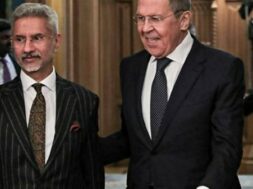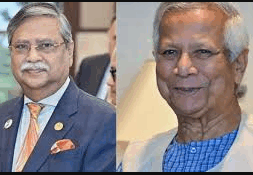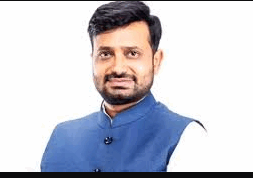
The Energy Conundrum: To import Russian oil, India still paying in USD
Virendra Pandit
New Delhi: While External Affairs Minister S. Jaishankar asserted in Moscow on Tuesday, after meeting his Russian counterpart Sergei Lavrov, that India will continue buying discounted Russian oil as it is helpful for the country, the problem is: New Delhi is paying for the Russian oil in American dollars!
In the last year, India’s foreign exchange reserves have come down by nearly USD 100 billion, to USD 500 billion, mainly because of its 85 percent dependence on energy imports to run its vast economy.
While Moscow is ready to trade with India in the euro or the UAE’s dirham, it is reluctant to shift to the Indian rupee because of the widening trade imbalance between the two countries, the media reported.
Indian importers said the rupee trade mechanism, devised in July by the Reserve Bank of India (RBI), has gained little traction yet.
“Neither banks nor suppliers are keen on the rupee payment. Since our exports to Russia are too little compared to our imports, suppliers will be left with too many rupees at hand and they aren’t sure what they would do with that,” an expert said.
Rising imports from Russia widened the trade imbalance between the two countries and Indian lenders too have been reluctant to shift to the rupee as they fear it may attract scrutiny from the US.
India had a trade deficit of USD 6.61 billion with Russia in the year ended March 2022, with total bilateral trade at USD 13.1 billion. After the Russian invasion of Ukraine on February 24, the trade deficit has increased further.
Payments in US dollars can be blocked by the US, but the industry does not consider payments in dirham safe. According to reports, the US government is looking for ways to block transactions in the UAE currency as well.
India is Russia’s largest oil customer after China, as refiners snap up discounted Russian oil shunned by Western buyers over Moscow’s invasion of Ukraine. India, the world’s third-largest oil importer and a traditional ally of Russia, has not explicitly condemned what Moscow calls its “special military operation in Ukraine”.
“It is our fundamental obligation to ensure that the Indian consumer has the best possible access on the most helpful terms to international (oil and gas) markets,” said Dr. Jaishankar.
“In that respect, we have seen that the India-Russia relationship has worked to our advantage. So if it works to my advantage, I would keep that going.”
His statement came a month ahead of the US and its allies in the Group of Seven (G7) rich nations taking steps to prevent Russia from profiting from oil by putting a cap on prices.
Dr, Jaishankar said India and Russia had an “exceptionally” steady and time-tested relationship and the aim was to fashion a balanced, mutually beneficial, and long-term engagement in the backdrop of the increasing economic cooperation.
According to reports, India’s diesel exports to Europe jumped after the Ukraine war. The Indian refiners had raised their exports to Europe, averaging at 730,000 million tonnes per month post-invasion, or 21 percent of its total exports of 2.64 MT/month, peaking at a high of 1.1 MT in March, versus the pre-invasion average of 570,000 MT/month.
Meanwhile, US Treasury Secretary Janet Yellen said India will benefit from a western cap on the Russian oil price. She argued the US did not want Russia to “profit unduly” from its Ukrainian war by enjoying higher prices. India and China are increasingly buying discounted Russian oil as global energy prices remain high and Western nations seek to scale down their reliance on Russian energy.
“We want Russian oil to continue to supply global markets; stay on the market. But we want to make sure that Russia doesn’t profit unduly from the war by enjoying prices that are essentially very high because of the war,” Yellen said.














